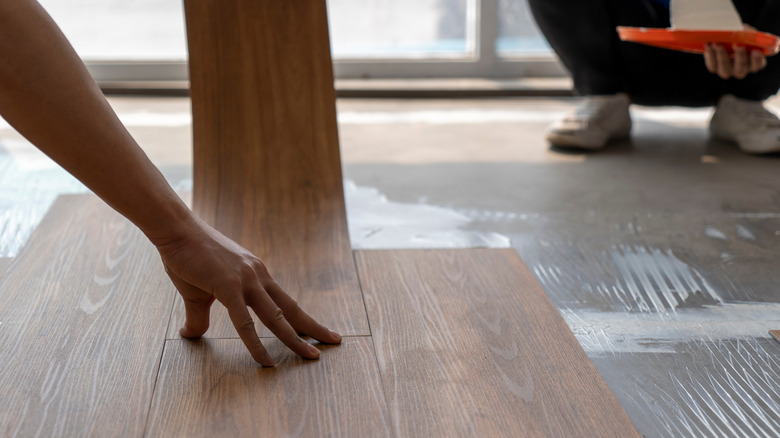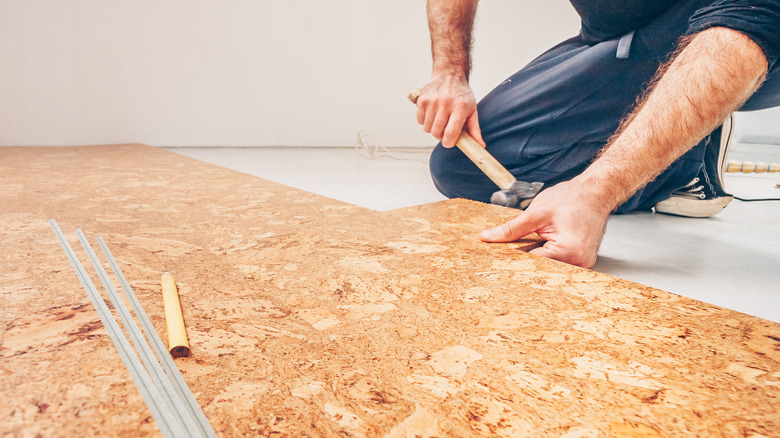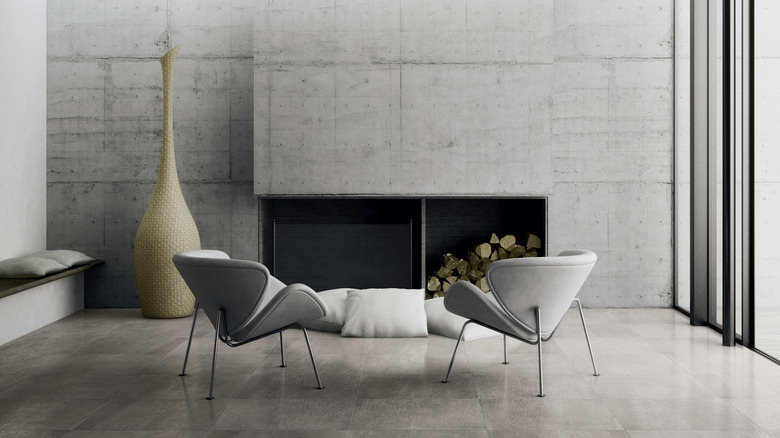Pet-Friendly Flooring Materials You Should Know About
When choosing flooring materials for different rooms in your house, it's important to consider the impact your pet can have on them. Dogs and cats, in particular, can wreak havoc on floors with their sharp nails, especially if they're the more active type. Other pets can cause problems too if they have accidents or shed excessively. To that end, you'll want to choose scratch-resistant flooring that doesn't hold in stains or odors and can easily be cleaned. For example, carpeting is most likely not going to be on your list (unless you're incredibly brave and don't mind finding creative solutions to get rid of stains and odors!). Hardwood floors are also not the best choice as they don't stand up well to scratches and will require regular reapplications of finishing. Don't be fooled by laminate flooring either as an alternative to hardwood. Moisture is known to seep through the cracks in the flooring while the surface layer is highly susceptible to scratches and wear and tear. Laminate is also incredibly poor at absorbing sound, especially the tapping of nails as pets run and walk across the surface.
There are plenty more Flooring options available to homeowners these days that can provide the variety and pet-resistance you need without compromising aesthetics. Keep scrolling for a few ideas!
Luxury Vinyl Flooring
Luxury vinyl flooring (LVF) comes in planks or tiles and is considered incredibly durable (via Floor Critics). Many of the problems caused by pets are solved with this type of flooring. For starters, it is resistant to spills, whether of the food, water, or waste variety, and even comes in a waterproof version. It also doesn't scratch or tear, making it your best defense against untrimmed pet nails.
Another perk is that LVF is easy to clean without holding in stains and is a soft material, making it comfortable for pets to rest on. The best part is that LVF mimics the look of a variety of materials, including stone, tile, and hardwood, meaning you'll have plenty of options to choose from without sacrificing on style. And all types are slightly textured, letting you rest assured that your pet will not slip and hurt themselves. This easy-to-install material will cost you between $3.00 and $7.00 per square foot.
Cork
Another up-and-coming flooring material that is very pet-friendly is natural cork. This material is great for pet-friendly homes for several reasons. First and foremost, cork is both scratch and stain resistant, which resolves two of the most common issues pet owners face (via The Spruce). Another unexpected bonus to cork flooring is that it is mold and bacteria resistant. CDC Distributors has this to say about cork flooring: "This floor naturally contains a waxy surface. That surface, called suberin, repels insects, bacteria, vermin, microbes, and other germs that could be residing on a busy floor's surface."
Your pet will also appreciate the soft texture of cork, which bounces back as they move across the floor (via Floor Coverings International). This is great for older pets that have knee and joint problems or for more active animals that risk injury on more rigid surfaces, such as tile and hardwood. Keep in mind that if you're choosing cork for your home, you will need to periodically seal it with a tough surface sealant. Despite this, cork has a very long life expectancy and can be easily repaired if damaged. This material comes in planks or tiles and will set you back about $7.50 per square foot (via Home Advisor).
Bamboo
Bamboo flooring is a natural material that is made from the processed fiber of the bamboo plant (via The Spruce). It has a similar appearance to hardwood once installed and can even be more rigid than hardwood, depending on the type and how it's made. The strand-woven variety is best in homes with pets as it stands up well to scratches. Another benefit to bamboo flooring is that it is stain resistant and easy to clean, which you will be grateful for when your pet tracks mud through your house or has an accident during the night.
Claims that bamboo is toxic due to trace amounts of formaldehyde have been debunked (via Ambient). However, you'll want to make sure you're choosing a flooring brand that tests their products regularly to make sure they are not carrying toxins into your home. The safest brands have Floorscore certification and are aligned with the CARB Phase 2 indoor air standard. One drawback to keep in mind is that bamboo is not soundproof, meaning you'll likely hear the click of your pet's nails as they walk across it. If possible, you'll want to add a coat of anti-slip lacquer for your pet's safety. For quality bamboo flooring, you'll spend from $4.00 to $7.00 per square foot (via Floor Critics).
Tile and Stone Flooring
A popular flooring choice for pet owners is tile and/or stone. Not only does this flooring look chic and modern, it is one of the best choices for easy maintenance and pet resistance (via Floor Critics). The material is both water and stain resistant, meaning liquids won't soak into the floor and leave a lasting mark. It is also one of the easiest to floors to clean, making it perfect for the puppy stage when dogs are still learning to house train. Older dogs with difficulties holding their bladder and bowels will also benefit from the easy-to-clean surface.
As expected, tile and stone are hard, durable materials that hold up well to damage caused by scratching nails. If you're worried that your floors will be uncomfortable for your pets due to their hardness and tendency to stay cool to the touch, consider installing an underfloor heating system, which will keep your rooms warm in the colder months and provide a cozy surface for your pets. Finally, tile and stone can work with any budget. You can pay as little as $1.00 per square foot and up to $30.00 for high-end, quality tiles.
How to protect flooring from pets
After choosing the flooring that works best for you, there are a few things you can do to make sure the flooring stays protected from any potential damages. First, keep your pet's nails trimmed at all times. Even if you've chosen scratch-resistant flooring, continuous wear and tear from untrimmed nails can still eventually take its toll.
If you have tile or stone flooring, make sure to regularly reapply a strong sealant to protect it from spills (via Build Direct). Don't forget to seal the grout as well as this is where stains tend to set in. If pet accidents are common, you may want to take your pet to the vet to rule out any underlying medical issues and get some tips on getting them to do their business outdoors (via Floor Critics). In the meantime, puppy pads can be used to protect your floors from housetraining pups and diapers are an option for older, incontinent animals. Remember to clean messes with an enzyme cleaner to prevent your pet from purposefully urinating in the same spot every time and always wipe up messes immediately to avoid damage.
Area rugs and floor runners are great for sections of your house in which there is heavy pet traffic (via The Flooring Girl). Rugs can also reduce slipping if you have an active pet. If you've chosen flooring that isn't great at absorbing sound, area rugs will help deafen the noise of clicking nails on the floor.






